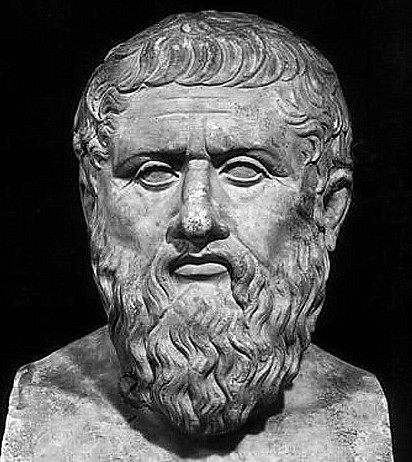Following up our discussion in #10 Thursday...
Thrasymachus (fl. 427 B.C.E.)
 Thrasymachus of Chalcedon is one of several “older sophists” (including Antiphon, Critias, Hippias, Gorgias, and Protagoras) who became famous in Athens during the fifth century B.C.E. We know that Thrasymachus was born in Chalcedon, a colony of Megara in Bithynia, and that he had distinguished himself as a teacher of rhetoric and speechwriter in Athens by the year 427. Beyond this, relatively little is known about his life and works. Thrasymachus’ lasting importance is due to his memorable place in the first book of Plato‘s Republic. Although it is not quite clear whether the views Plato attributes to Thrasymachus are indeed the views the historical person held, Thrasymachus’ critique of justice has been of considerable importance, and seems to represent moral and political views that are representative of the Sophistic Enlightenment in late fifth century Athens.
Thrasymachus of Chalcedon is one of several “older sophists” (including Antiphon, Critias, Hippias, Gorgias, and Protagoras) who became famous in Athens during the fifth century B.C.E. We know that Thrasymachus was born in Chalcedon, a colony of Megara in Bithynia, and that he had distinguished himself as a teacher of rhetoric and speechwriter in Athens by the year 427. Beyond this, relatively little is known about his life and works. Thrasymachus’ lasting importance is due to his memorable place in the first book of Plato‘s Republic. Although it is not quite clear whether the views Plato attributes to Thrasymachus are indeed the views the historical person held, Thrasymachus’ critique of justice has been of considerable importance, and seems to represent moral and political views that are representative of the Sophistic Enlightenment in late fifth century Athens.
In ethics, Thrasymachus’ ideas have often been seen as the first fundamental critique of moral values. Thrasymachus’ insistence that justice is nothing but the advantage of the stronger seems to support the view that moral values are socially constructed and are nothing but the reflection of the interests of particular political communities. Thrasymachus can thus be read as a foreshadowing of Nietzsche, who argues as well that moral values need to be understood as socially constructed entities. In political theory, Thrasymachus has often been seen as a spokesperson for a cynical realism that contends that might makes right... (IEP, continues)
No comments:
Post a Comment